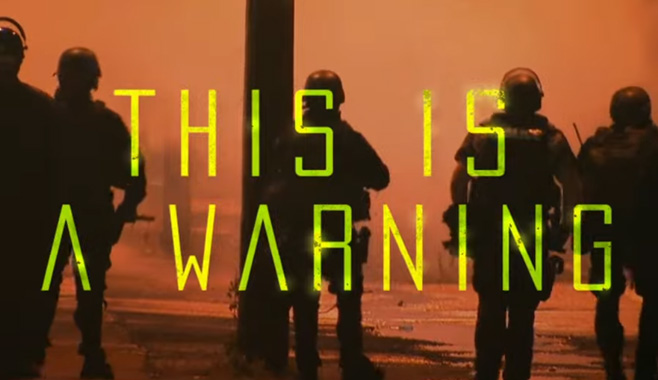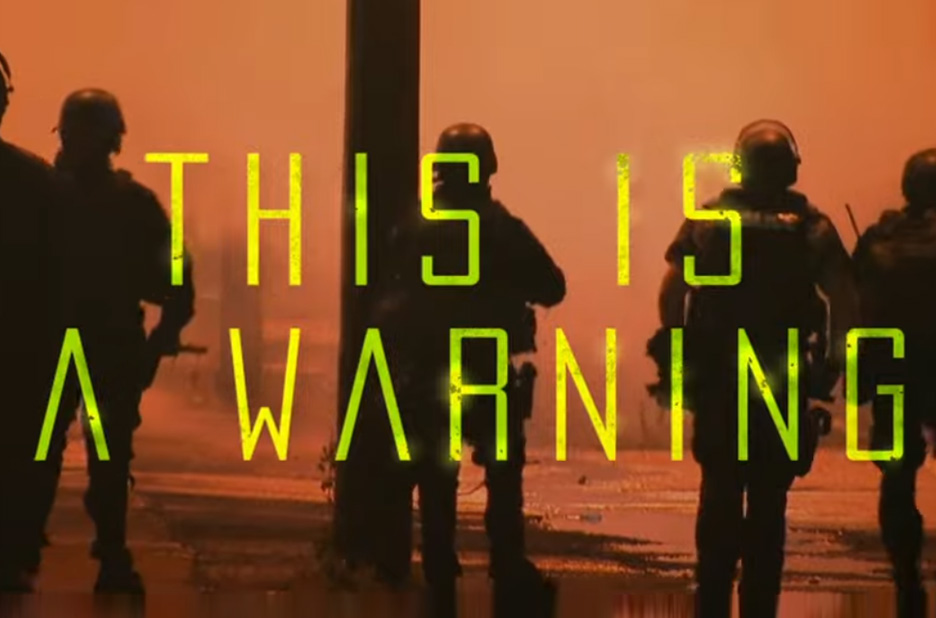Film
2073 (2024)
Asif Kapadia
3/5
Dystopian vision stays on the surface
In his depiction of a very plausible dystopian future, Asif Kapadia reminds us of the many reasons why we are hurtling towards such a nightmare scenario. The film holds two strands of narrative, one documentary, the other fictional. The documentary segments sum up all the ominous changes that have happened in the last 20-30 years and which are rapidly leading us away from democracy to an autocratic surveillance society ravaged by climate-change and run by the rich via AI. The fictional account is about a woman, played by Samatha Morton, living off-grid in the year 2073. The representation of 2073 doesn’t fully convince, not so much in terms of the situations it depicts, more due to its lack of imagination in imagining this near future. For instance Samantha Morton is seen many times cranking her torch by hand, as if this is the only technological impact from 2073 worth talking about.


The documentary sections feature many luminaries of the fight for democracy, mainly journalists, amongst them Maria Ressa, the winer of the Nobel Peace Prize in 2021, who has been holding the Duterte dictatorship in the Philippines to account over the years. Her testimony is striking, particularly when she stresses that when we no longer have a common reality built on accepted facts, the rules change radically and take us in an unknown direction away from democracy. Carole Cadwalladr’s contribution is also important in reiterating how a few rich men are increasingly meddling with our democratic processes and institutions with impunity.
I don’t think this film tells us anything we don’t already know and although I have found its cinematic style and pace impactful, I wonder what and who it is for? It is preaching to the converted in my case and most likely in the case of almost everyone who will see it. It is not really in a format suitable for galvanising action. It is sensationalising known facts and perhaps reinforcing the view that the golden age of humanity is now gone and that we are in serious decline as a civilisation.
There are two aspects where I find fault with Kapadia’s approach. The first is that although he attempts to speak globally, he chooses to show the persecuted communities that he perhaps feels kinship with, rather than offer a universal view. It’s a very tough balance to strike, but if you have engaged in talking about it, you can’t just pick and choose whatever is easiest to show on screen, particularly when we are talking about contemporary events that people have very strong feelings about. And I’m not suggesting an exercise of the BBC-style pseudo impartiality, I’m talking about recognising the complexities of human rights abuses around the world and not contributing to the cost of selective outrage.
The second aspect is that again if you intend to speak globally, you can’t just speak in English. Interviewing only English-speaking experts and defenders of democracy seems very easy and one-sided. The 2073 future takes place in the state called ‘the Americas’, in New San Francisco without any mention of what might be happening outside America. I for one would have liked to know what may be happening to the rest of the world in 2073. It seems to me that the UK-born Kapadia has completely imbibed the US view of the world where the US public opinion validates the importance of what’s going on elsewhere. The idea itself that at a time of a global crisis, the US somehow managed to expand to engulf the whole continent is suspect in its imperialist confidence.

One glaring omission in this film is the war in Ukraine which is a major contributor to insecurity in Europe and rest of the world. Putin is shown a couple of times, but without any in-depth commentary. There is a chilling if brief suggestion at the start that in 2073, Ivanka Trump may be US president. It would have been interesting to explore this further.
Nevertheless on the subject of US tech billionaires whom I refuse to call tech bros despite their obvious toxic machismo, I fully agree with Kapadia. There is stomach churning footage of the likes of the vile Peter Theil and the equally vile Elon Musk. Just these two on their own are in my view a much bigger threat to the world that the misuse of AI. Incidentally these despicable people who owe their wealth and influence to their tech empires know very little about the underlying technology they use and sell. Who will hold these people to account?
At the end of the credits, we are taken back to the last scene where a robot interrogates Samantha Morton. The questions it asks are disturbing and banal at the same time and finally we realise that AI ground zero is in fact a simple captcha algorithm we see in our web browsers every day. A small connection of the dots in an otherwise fragmentary and one-sided narrative of our deeply troubled world.